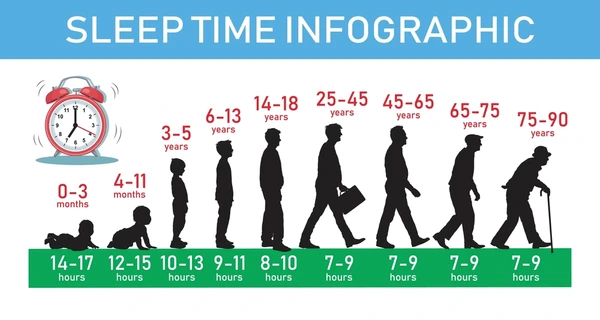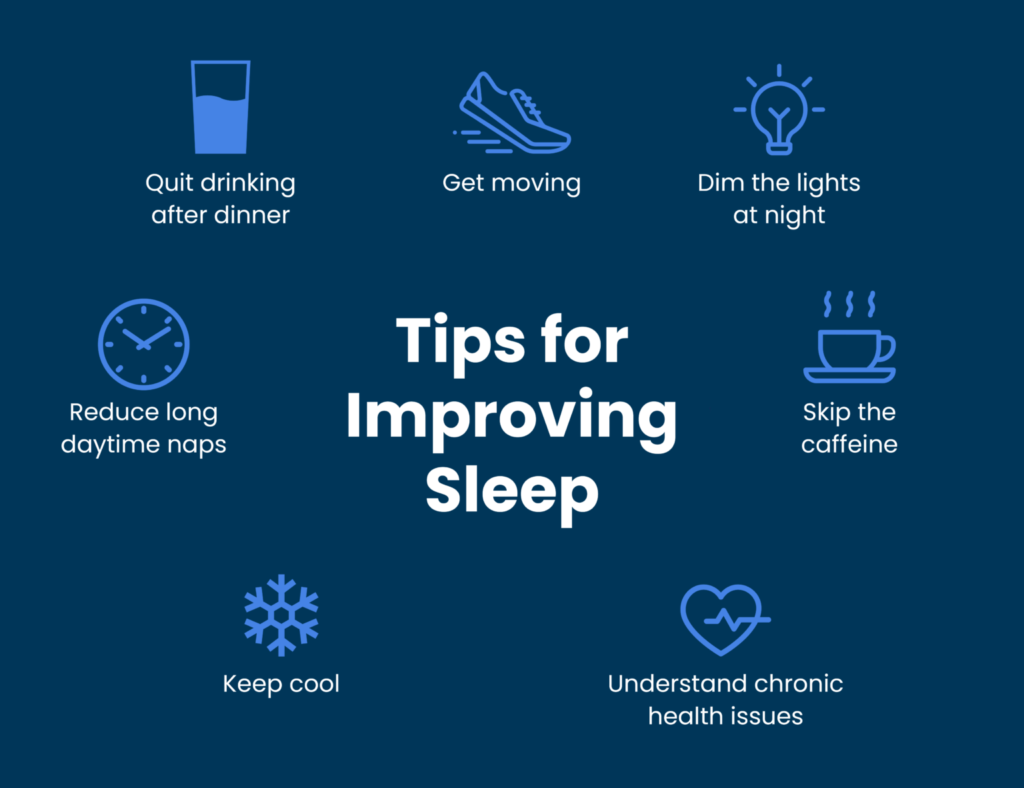
how much sleep do you need by age
Sleep is important for several reasons: Why Sleep Matters Most.
Introduction
However, most people undervalue the significance of sleep in their lives; yet it is an integral part of our daily life. Understanding why sleep is important can result in better health, increased productivity and improved quality of life. The focus here will be on the key reasons as to why sleep should not be ignored and how it affects different segments of our lives.
The Biological Necessity of Sleep
Not just a break, sleep is a complex biological process that contributes greatly to keeping us in good health. Here’s why sleep is important from a biological perspective:
Restoration and Repair: It is during sleep that body tissues muscles cells are repaired; this restoration process being essential for physical health.
Brain Function: Sleep supports cognitive functions such as consolidation of memory, learning and problem solving.
Hormone Regulation: Sleep regulates hormones that control appetite, stress, and growth. Disruption in sleep can lead to hormonal imbalances.
The Impact of Sleep on Mental Health
Sleep quality and duration affect mental state considerably. Here’s why sleep is important for mental well-being:
Mood Regulation: Mood regulation necessitates enough restful slumbering period which stabilizes emotions (Gregoire).
Stress Reduction: Suffice it to say that sound sleeping enhances stress threshold while low quality or less than required hours reduce ability to cope with stressful situations (Medical Daily).
Information from the American Academy of Sleep Medicine (AASM)
Everybody needs a different amount of sleep.
To understand how much you need, start by making a note of how you feel each day. If you feel relaxed and energized, you’ve likely had a good night’s rest. If you haven’t slept enough, you might feel tired and irritable.
In addition, keep an eye on your sleep duration. It may sound obvious, but a quick daily check-in can help you spot patterns.
What the science says.
Studies show that most adults feel their best after getting 7 or more hours of sleep on a regular basis. However, some people feel fine after getting less sleep, while others need more – especially children, teens, and young adults.
Factors like age, genetics, environment, and medical conditions all play a part in how much sleep your body needs.
Finding the right amount for you.
Sleep experts often refer to ‘sleep opportunity’. This is the time in bed that you reserve for sleep each night. To help you understand if 7 hours of sleep feels like the right amount, try giving yourself the opportunity to get at least 7 hours of sleep for a few nights in a row. If you still wake up feeling tired and are sleepy during the day, then you may need to get more than 7 hours of nightly sleep.
Understanding the Basics of Sleep
Sleep is a vital component of our daily lives, playing a crucial role in maintaining overall health and well-being. But how much sleep do you need? The answer varies depending on age, lifestyle, and individual health needs.
Sleep Recommendations by Age
The National Sleep Foundation provides guidelines on how much sleep you need based on age:
- Newborns (0-3 months): 14-17 hours
- Infants (4-11 months): 12-15 hours
- Toddlers (1-2 years): 11-14 hours
- Preschoolers (3-5 years): 10-13 hours
- School-age children (6-13 years): 9-11 hours
- Teenagers (14-17 years): 8-10 hours
- Young adults (18-25 years): 7-9 hours
- Adults (26-64 years): 7-9 hours
- Older adults (65+ years): 7-8 hours

Factors Affecting Sleep Needs
While these recommendations are helpful, individual needs can vary. Factors that influence how much sleep you need include:
- Lifestyle: Active individuals or those with physically demanding jobs may require more sleep.
- Health Conditions: Chronic illnesses or stress can increase sleep needs.
- Sleep Quality: Poor quality sleep can leave you feeling unrested, even if you get the recommended hours.
Signs You’re Not Getting Enough Sleep
Knowing how much sleep you need is crucial, but recognizing when you’re not getting enough is equally important. Common signs of sleep deprivation include:
- Difficulty waking up in the morning
- Feeling sluggish throughout the day
- Trouble concentrating
- Mood swings or irritability
- Frequent colds or infections
Tips for Improving Sleep Quality
Getting the right amount of sleep is essential, but so is ensuring the quality of that sleep. Here are some tips:
- Stick to a Sleep Schedule: Go to bed and wake up at the same time every day, even on weekends.
- Create a Relaxing Bedtime Routine: Activities like reading or taking a warm bath can help signal your body that it’s time to wind down.
- Limit Screen Time Before Bed: The blue light from screens can interfere with your body’s natural sleep-wake cycle.
- Create a Comfortable Sleep Environment: Ensure your bedroom is cool, dark, and quiet.
- Watch Your Diet: Avoid heavy meals, caffeine, and alcohol before bedtime.


